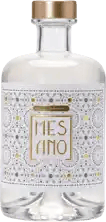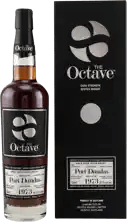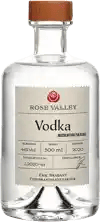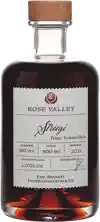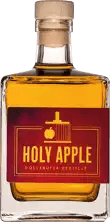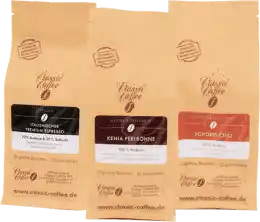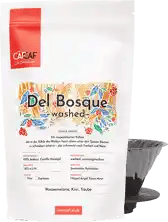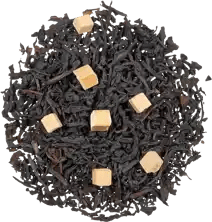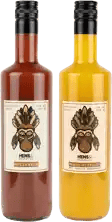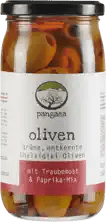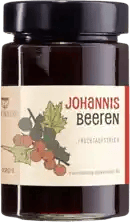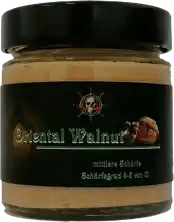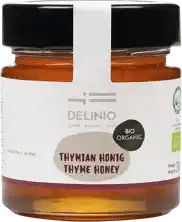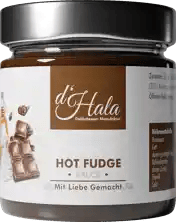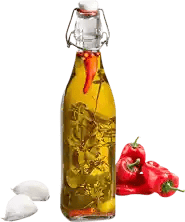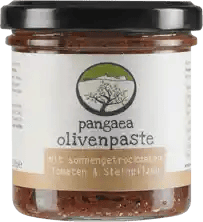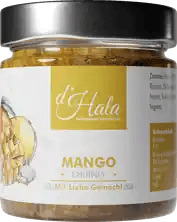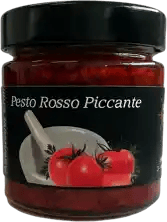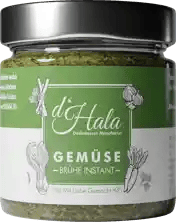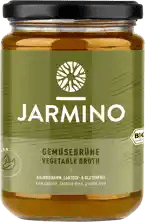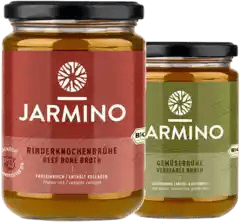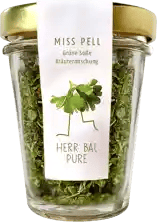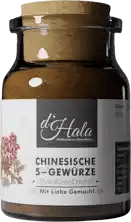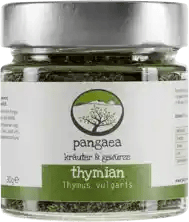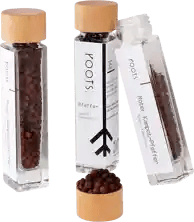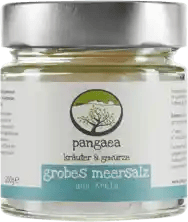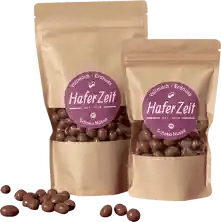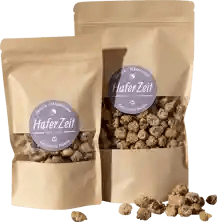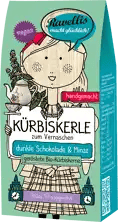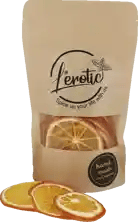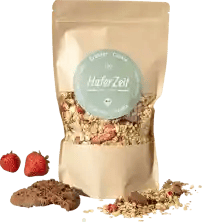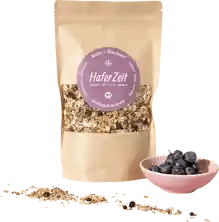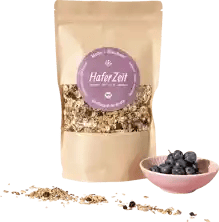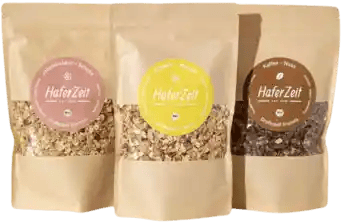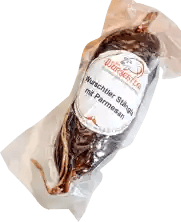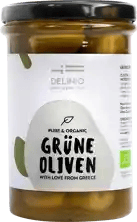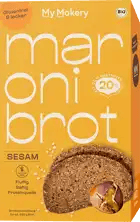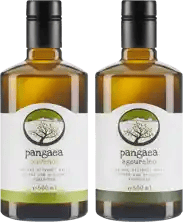Quality instead of quantity!
7,000 independent products
No mainstream
7,000 independent products
Buying mustard: Spoilt for choice
When you're standing in front of the mustard shelf in the supermarket or online store, the choice can be overwhelming. There are countless varieties of mustard: from classic hot and medium hot to exotic creations such as beer mustard or honey mustard. Buying mustard often depends on personal taste and the intended use. Do you like it spicy and strong or do you prefer a sweet note? Should the mustard be used as a dip, in marinades or as an ingredient in sauces and dressings?
When buying mustard, you should also pay attention to the quality. High-quality mustard products are often made without artificial additives and flavor enhancers. Instead, they contain natural ingredients such as mustard seeds, vinegar, salt and, if necessary, sugar or honey. Another indicator of quality is the consistency and color of the mustard - they should be uniform and appealing.
Whether for traditional German dishes, exotic creations or as a simple spread - there is the right mustard for every occasion and taste. The variety may not make the decision easy, but it makes it all the more exciting!
What is mustard and what is it made from?
Mustard is more than just a simple condiment - it is a culinary institution. But what exactly is mustard? Put simply, mustard is a condiment made from the ground seeds of the mustard plant. These seeds are mixed with liquid such as water, vinegar or wine and, depending on the variety, enriched with other ingredients such as salt, sugar, herbs and spices.
The mustard plant belongs to the cruciferous family and is related to vegetables such as broccoli and cabbage. There are different types of mustard plants that produce white, brown and black mustard seeds. It is these seeds that give mustard its characteristic pungency. The pungency is produced by the reaction of the mustard oils with enzymes when the seeds are ground and mixed with liquid.
Mustard is used and appreciated in many different cultures around the world, from the classic German sausage to Indian curry dishes. The variety of mustard products and the numerous ways in which they can be used make mustard a true all-rounder in the kitchen.
Why is mustard so popular?
Mustard is popular in kitchens around the world for good reason. It not only adds spice and heat to dishes, but also a unique depth of flavor. The versatility of mustard is impressive: it goes well with a wide range of dishes - from classic sausages to salad dressings and exotic sauces. Mustard can subtly refine a dish or add a strong flavor note, depending on which variety and how much of it is used.
Mustard is also popular for its health benefits. It contains valuable nutrients such as vitamin B3, magnesium and selenium and has a circulation-enhancing effect. Mustard is also said to stimulate the appetite and aid digestion. Its pungency stimulates saliva production, which in turn aids digestion. Its easy availability and long shelf life make mustard a practical and popular condiment in households all over the world. With a bottle of mustard in the kitchen, you always have a quick way to add an extra flavor dimension to dishes.
Is mustard also eaten as much in other countries?
Mustard is not only a popular condiment in Germany, but also enjoys great popularity around the world. In many countries, mustard has a long tradition and is an integral part of the local cuisine. In India, for example, mustard seeds and oil are often used in cooking, both for their piquant flavors and for their supposed health benefits.
In France, Dijon mustard is famous for its subtle, pungent flavor and is often served with traditional French dishes. In the USA, yellow mustard, which is often milder and slightly sweeter than European mustard, is a must on hot dogs and hamburgers. In England, on the other hand, people often enjoy spicy mustard, which goes perfectly with traditional dishes such as roast beef.
Every country has its own mustard traditions and flavors, which underlines the diversity and universality of this popular condiment. No matter where you are in the world, mustard is an indispensable part of the local culinary culture.
Where does mustard originally come from?
The origins of mustard go back a long way. Archaeological findings show that mustard was already being cultivated in the Indus Valley, one of the oldest civilizations in Asia. This civilization existed until around 1800 B.C. Mustard was already appreciated in ancient times and the first recorded recipe for mustard preparation comes from the Roman Columella in the 1st century A.D. In Europe, mustard spread rapidly in the Middle Ages and in the 8th century it was mentioned in Charlemagne's writings.
The city of Dijon in France was granted a monopoly on mustard production in the 13th century and became famous for its Dijon mustard. Mustard also has a long tradition in Germany. For example, Düsseldorf ABB mustard, the oldest German mustard brand still in existence, has been produced since 1726. Mustard has been used for centuries as a condiment, but also in medicine, where it was valued for its circulation-promoting and anti-inflammatory effects. Today, mustard is a spice used all over the world and is an integral part of the cuisine in many cultures.
What is mustard powder?
Mustard powder, also known as mustard flour, is another form in which mustard is available. It consists of finely ground mustard seeds, usually of the white mustard variety, and is often used in English cuisine. If mustard powder is not used directly in cooking, it can be mixed with water to form a paste, which is used in a similar way to ready-made table mustard.
Mustard powder is particularly practical as it has a long shelf life and only develops its pungency when liquid is added. It is also used in the production of curry powder and provides a hot, spicy note. Mustard powder can also be used as an ingredient in marinades, dressings and sauces to give them a spicy heat.
The powder is also suitable for preparing mustard at home. By adding other ingredients such as vinegar, water, sugar and spices, you can easily create a customized mustard paste.
Is mustard healthy?
Mustard is not only a tasty addition to many dishes, but also offers health benefits. It contains nutrients such as vitamin B3, magnesium, calcium and phosphorus. These minerals and vitamins contribute to the normal functioning of muscles and nerves and can support blood clotting. The pungent taste of mustard, which comes from the mustard oils it contains, promotes blood circulation and can stimulate digestion.
The pungency of mustard also stimulates the production of saliva and gastric juice, which helps to digest heavy and fatty foods better. Mustard oils are also said to have antioxidant properties and to be able to reduce the risk of certain types of cancer. When applied externally, mustard poultices or baths can stimulate circulation and provide relief from muscle or joint pain.
Despite these positive aspects, mustard should be consumed in moderation, as it can be irritating to the stomach and intestines in large quantities. In general, however, mustard is a healthy condiment that can enrich many dishes and offer health benefits at the same time.
How much mustard should you eat a day?
As with many things in life, it's the quantity that makes the poison. Although mustard offers health benefits, it should be consumed in moderation. There is no exact recommendation as to how much mustard is ideal per day, as this depends on individual factors such as general diet and tolerance to spicy foods.
For most people, it is safe to consume mustard as a condiment in normal quantities. This means that a few teaspoons of mustard with a meal is generally unproblematic. However, anyone who is sensitive to hot spices or has problems with their gastrointestinal tract should be more careful with hot mustard varieties.
In general, it is advisable to pay attention to your own body's reaction and adjust the amount of mustard accordingly. As part of a balanced diet, mustard can be a tasty and healthy addition to many dishes.
What types of mustard are there?
The world of mustard is rich and varied, with numerous varieties that differ in taste, spiciness and consistency. From hot mustard, which offers a strong spiciness, to medium-hot mustard, which is considered a real all-rounder in the kitchen, to sweet mustard, which is particularly popular with veal sausage and meat loaf, each variety offers a unique taste experience. Fruity mustard varieties, such as plum or cranberry mustard, complement game dishes perfectly, while mustard with herbs such as tarragon or dill brings new flavors to salads and sauces. The famous Dijon mustard from France, known for its fine and spicy note, is a must in many classic French recipes. This variety makes mustard an indispensable ingredient in the kitchen and allows dishes to be given a whole new dimension with just one ingredient.
Spicy mustard
Hot mustard, often made from a higher proportion of brown or black mustard seeds, is for those who like it spicy. It is characterized by an intense heat and a strong aroma that can be felt on the nose and palate. Hot mustard is ideal for meat dishes, sausages and as an ingredient in hot sauces and marinades. It can give a dish a strong spicy kick and is therefore a favorite for lovers of spicy cuisine.
Medium hot mustard
Medium-hot mustard is the all-rounder among mustard varieties and is characterized by a balanced blend of heat and spice. It is usually made from a combination of white and brown mustard seeds. Its versatility makes it a popular choice in many kitchens. Medium-hot mustard goes perfectly with meat, sausage and cheese, but also in sauces, salad dressings and even in sweet dishes. Its balanced spiciness makes it an ideal ingredient for a variety of dishes.
Sweet mustard
Sweet mustard is known for its unique combination of mild spiciness and sweetness. It is often sweetened with sugar, honey or apple sauce and has a thicker, often grainy consistency. In Germany, sweet mustard is particularly popular as an accompaniment to veal sausage and Leberkäse. It also goes well with cheese and is ideal as a topping or ingredient in various dishes to give them a sweet and spicy note.
Fruity mustard
Fruity mustard, enriched by the addition of fruit flavors such as plum or cranberry, offers a special flavor composition. These mustard varieties combine the spicy heat of mustard with the natural sweetness and acidity of fruit. They are an excellent choice for game dishes and offer a sophisticated flavor enhancement for sauces and dressings. Fruity mustard varieties are also an interesting ingredient for creative kitchen experiments.
Mustard with herbs
Mustard with herbs combines the pungency of mustard with the fresh aroma of herbs such as tarragon, dill or basil. These varieties add an extra aromatic dimension to the mustard and are ideal for salad dressings, marinades and as an accompaniment to fish dishes. Herb mustard is a tasty addition that can enrich both rustic and fine dishes.
Dijon mustard
Dijon mustard, named after the French city of Dijon, is known for its fine and spicy flavor. This mustard is traditionally made from brown or black mustard seeds, which are processed into a smooth paste. It is characterized by its intense, spicy taste and is an indispensable ingredient in many classic French recipes. Dijon mustard is ideal for vinaigrettes, mayonnaises, sauces and as a refinement for meat dishes.
What do you eat mustard with?
Mustard is a versatile condiment that goes well with a wide variety of dishes. It is a classic accompaniment to sausages and meat dishes, but its uses go far beyond this. Mustard can add spice to salad dressings and marinades, add depth to sauces and even spice up sandwiches and burgers. In finer cuisine, mustard is prized for its ability to add complex flavor to dishes, whether in a delicate mustard sauce or as part of a sophisticated spice blend. Mustard is also a popular ingredient in vegetarian cuisine, where it adds an extra kick to tofu, vegetable dishes and salads.
What is the shelf life of mustard?
Mustard is known for its long shelf life. Unopened, a jar of mustard can often keep for several years as long as it is stored in a cool, dry place. Once opened, mustard should be kept in the refrigerator, where it will keep for several months. However, the shelf life can vary depending on the type of mustard and additives. It is important to pay attention to the expiration date and to stop using the mustard if there are any changes in smell, taste or consistency. In general, mustard is a long-lasting condiment that has a permanent place in every kitchen.
Well-known proverbs with mustard
Mustard has left its mark not only in the kitchen, but also in the language. A well-known saying is: "Add your mustard". This idiom is often used to express that someone is expressing their opinion without being asked or interfering in a conversation. It reflects the idea that just as mustard adds flavor to a dish, an opinion or comment can add an extra dimension to a discussion, whether desired or not.
"Mustard makes you stupid" - is that true?
The saying "mustard makes you stupid" is a common myth, but it has no scientific basis. There is no evidence that eating mustard has a negative effect on intelligence or brain function. In fact, the opposite is true: mustard contains various nutrients that are beneficial to health.
The mustard oils, which are responsible for the pungency, can even have positive effects on digestion and the immune system. This proverb should therefore be regarded as a popular saying rather than a scientific statement.
"Add your mustard" - where does the saying come from?
The saying "add your mustard" has its origins in the idea that mustard is a condiment that adds flavor to a dish. Applied to language, it means that someone adds their opinion to a topic, often unsolicited or unwanted. This idiom is a metaphorical comparison that equates intervening in a conversation or discussion with adding mustard to a meal - it can enrich the whole or be inappropriate, depending on the context and quantity.
Make your own mustard
Making your own mustard is easier than you think and allows you to customize the taste. The basic ingredients are mustard seeds or mustard powder, water, vinegar and salt. Depending on personal taste, other ingredients such as honey, herbs, spices or fruit can be added. The mustard seeds are ground and mixed with the other ingredients until a homogeneous paste is formed.
This paste is then left to rest for a few days to allow the flavors to develop. Homemade mustard is not only a treat, but can also make a creative and personal gift.
Brilliant!

Bitte bestätige deine Anmeldung noch eben - du hast eine Bestätigungsmail von uns. Klicke darin auf den Link. Danach bekommst du deinen Rabattgutschein.




















